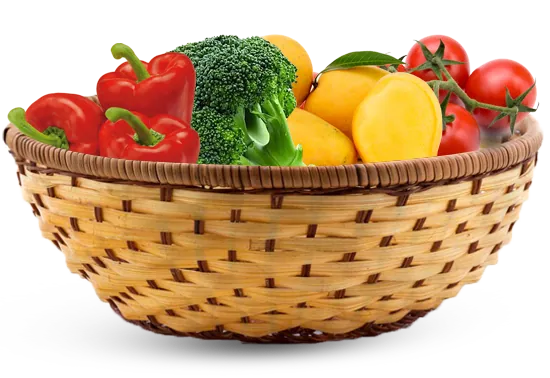- Importance of Vitamin B12
- Recommended Intake for Vitamin B12
- Risks from Excessive Vitamin B12


Vitamins and minerals are the most important factors in the human body that help cells and organs do their jobs hassle-free. However, vitamin B12 is a key player in the function and development of blood and nerve cells.
But humans don't make this nutrient on their own, in fact, B12 is tied to the protein in the foods we eat. Animal meat, fish, eggs, and milk products are good sources of vitamin B12.
According to research, vitamin B12 deficiency has become a common health issue in India, and approximately 47% of the country's population suffers from low B12 levels. Therefore, it has become essential to consume food & beverages that have vitamin B12 in order to get it.
Here, we've curated a list of foods that are high in vitamin B12. So, fill your plate with these vitamin B12-rich foods for healthy nerve function and a strong immune system.
Fortified Cereal
Animal products like milk and meat are good sources of vitamin B12. You can add breakfast cereals on top of them. The following morning, cereals are packaged conveniently and have a high vitamin B12 content, allowing you to store them for a few weeks.
They are the ideal complement to your daily diet to help you get the recommended amount of vitamin B12. These figures apply to each 100 g serving of the cereal. If you decide to use fortified cereal to improve your intake of vitamin B12, be sure to pick one that is high in fiber or whole grains and low in added sugar.
Clams
Clams contain the largest amount of vitamin B12 of any food, and they are also rich in potassium. Fresh or canned clams in three-ounce portions have 534 mg of potassium or 15% of your DV. Generally, whole baby clams provide a significant amount of iron with 200% of the DV in a 100-gram serving
Eggs
Indeed, eggs are the best source of protein and vitamins. One hard-bubbled egg has around 0.6 micrograms of B12. Egg yolks have higher levels of vitamin B12 than egg whites, according to research. The B12 in egg yolks is likewise more straightforward to assimilate.
Therefore, it's prescribed to eat entire eggs rather than only their whites. But if you have a deficiency, eggs ought to be something other than your primary source for B12. There's not much proof that they can raise your degrees of B12 so much.
Protein, a number of vitamins and minerals, including vitamin B12, can be found in milk and dairy products like yogurt and cheese. According to research, studies have discovered that your body absorbs the vitamin B12 in milk and dairy items better than the vitamin B12 in meat, fish, or eggs. However, the best part is that you can easily add milk or dairy products to your daily diet.
Beef is an ideal source of zinc, containing 7 mg in 3 ounces, and a high source of vitamin B12. However, it also brimmed with rich protein and the B vitamin riboflavin, which helps cells alleviate PMS symptoms. In case you're seeking a higher source of vitamin B12, consider choosing low-fat cuts of meat. It's also good to roast it instead of frying it to preserve the B12 content.
As we know, vitamin B12 is derived from animals and dairy products. If you're a vegan or on a strict plant-based diet, it'll take a lot of work for you to get your B12 directly from food. However, to keep your vitamin levels up, the doctor will likely prescribe you a daily or weekly dose of vitamin B12 through supplements.
Fermented items, for example, tempeh and miso (acquired from fermented soya beans), shiitake mushrooms, and green algae (spirulina and nori), contain substances that are compared artificially to vitamin B12. In any case, they don't work in the body similarly to the active vitamin, so these food varieties can't be depended upon as sources of vitamin B12.
The higher dose of vitamin B12 is safe because the human body absorbs only as much as it needs, and other excess passes through urine. However, the higher dose of vitamin B-12 to treat a deficiency might cause a minor headache.
Doctors basically prescribe the supplements for people who are at risk of vitamin B12 deficiency, such as senior citizens, pregnant women, vegans or vegetarians.
Further, there are several types of supplements of Vitamin B12. For instance, you can swallow, chew, or drink them or place them under your tongue.
Vitamin B12 is an ideal nutrient that the human body needs for the development of myelination and function of the central nervous system, healthy red blood cell formation, and DNA synthesis. Whether you seek to improve your immune system or prevent B12 deficiency, consider adding the food mentioned above to your daily diet to improve your overall health.
Yes, it's not harmful to take 1000 mcg of B12 a day, though it's unnecessary because the human body absorbs only as much as it needs, and other excess passes through urine.
If your B12 is too high, it might cause frequent headaches and gastrointestinal problems such as diarrhea, nausea, and vomiting.
There are different types of test kits available in the market that allow you to collect a sample for vitamin B12 testing at home.
The mild deficiency of B12 may not cause any symptoms. But if you still don't level-up your vitamin level, it may lead to symptoms such as Weakness, tiredness, or lightheadedness.
To level up your B12 level fast, consider adjusting your diet and consuming food that has higher vitamin B12. If it does not work, vitamin supplements may be recommended.
4.4
Rated by 2636 customers
Select Your Rating
Let us know about your experience or any feedback that might help us serve you better in future.


A boy-in-squares bagging escapades of switching streets in groove & sensing musical airy-notes from 6 1". Under wayed nyctophile sketching the walls of life from the panorama of anime.
Do you have any thoughts you’d like to share?